News
-
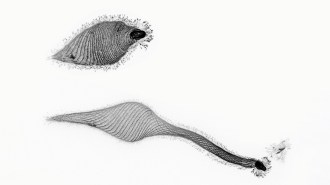 Life
LifeThis protist unfolds its ‘neck’ up to 30 times its body length to scout prey
With geometry’s help, 'Lacrymaria olor' can extend its long, necklike protrusion in less than 30 seconds.
-
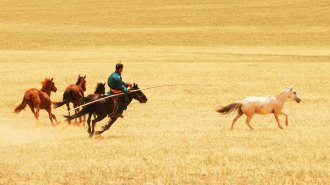 Genetics
GeneticsHorses may have been domesticated twice. Only one attempt stuck
Genetic evidence suggests that the ancestors of domestic horses were bred for mobility about 4,200 years ago.
-
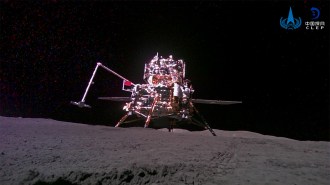 Space
SpaceChina’s Chang’e-6 snagged the first samples from the farside of the moon
The samples, which will be returned to Earth in late June, could help researchers figure out why the moon’s two sides are so starkly different.
By Adam Mann -
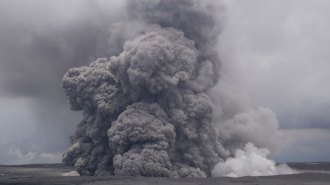 Earth
EarthIn 2018, Hawaii’s Kilauea volcano erupted like a stomp rocket
The stomp rocket–like mechanism is a newly observed type of eruption.
-
 Space
SpaceThe sun is entering solar maximum. Expect auroras, and more
May saw the strongest auroras in recent memory. As the sun gets more active, those light shows may be a preview of what’s to come until at least 2026.
By Adam Mann -
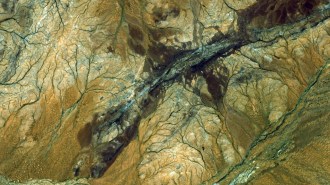 Earth
EarthFreshwater first appeared on Earth 4 billion years ago, ancient crystals hint
Oxygen ratios in ancient zircon crystals suggest that the planet’s water cycle got started hundreds of millions of years earlier than thought.
-
 Health & Medicine
Health & MedicineBird flu can infect cats. What does that mean for their people?
Pet owners can take precautions to avoid H5N1, such as keeping cats indoors and making sure they don’t eat raw meat or milk.
-
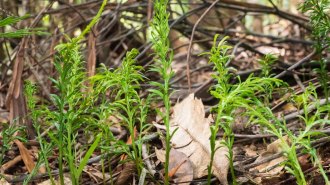 Life
LifeThe largest known genome belongs to a tiny fern
Though 'Tmesipteris oblanceolata' is just 15 centimeters long, its genome dwarfs humans’ by more than 50 times.
By Jake Buehler -
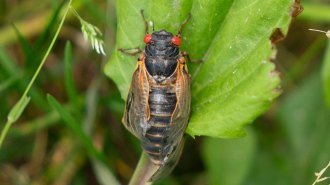 Life
LifeIt’s a big year for cicadas. Here’s what to know about this year’s emergence
Periodical cicadas are an odd marvel of nature. This year, the biggest brood of all is coming out in the U.S. South while another emerges in the Midwest.
By Susan Milius -
 Climate
ClimateWarm water is sneaking underneath the Thwaites Glacier — and rapidly melting it
The salty water, just 3.6 degrees Celsius above the ice’s melting point, is undermining the foundation of the Antarctic glacier.
By Douglas Fox -
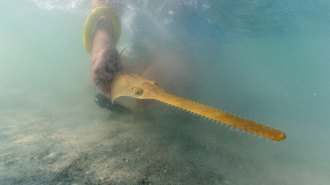 Animals
AnimalsA built-in pocket protector keeps sawfish from ‘sword fighting’ in the womb
What’s to prevent pups, with a snout that resembles a hedge trimmer, from slicing and dicing each other in mom’s uterus? Scientists have the answer.
-
 Particle Physics
Particle PhysicsScientists propose a hunt for never-before-seen ‘tauonium’ atoms
Made of heavy relatives of the electron, the exotic atoms could be used to test the theory of quantum electrodynamics.